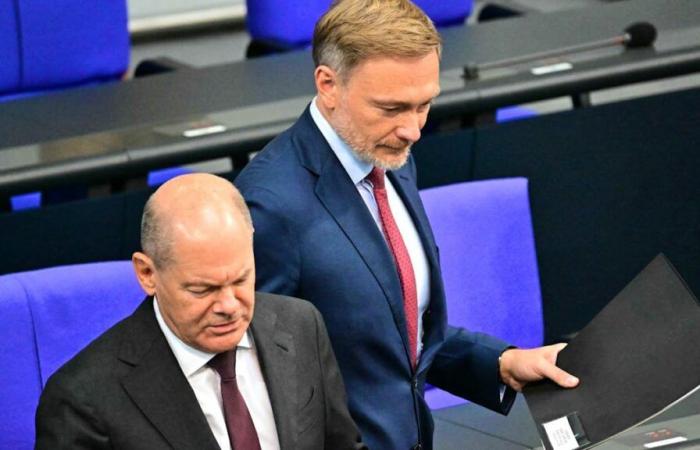The leak of a document demanding immediate reforms in Germany to restore the economy fueled speculation on Saturday about a possible breakup of Olaf Scholz’s coalition, whose divisions are coming to light. This 18-page roadmap written by Finance Minister Christian Lindner, leader of the liberal party (FDP), advocates an “economic turning point” for the country through a series of measures going against the positions of its government partners, the chancellor’s social democratic party and the environmentalists.
Published in the press on Friday, the document has all the makings of a “provocation”, say the weekly “Der Spiegel” and the daily “Frankfurter Allgemeine Zeitung”. Mr. Lindner’s proposals read like “an attack” against his coalition allies, believes the “Süddeutsche Zeitung”, while the tabloid “Bild” sees it as a “test of truth” for the government. The document is part of “neoliberal rhetoric” and “is not compatible with the coalition contract,” SPD MP Nils Schmid, a close friend of Olaf Scholz, commented in the press.
The Minister of Finance calls in particular for an end to the “solidarity tax” introduced in 1991, initially to finance the cost of reunification. He also wants Germany to abandon climate targets that are more ambitious than those set by the European Union.
He also calls for renouncing several reforms which, according to him, harm the competitiveness of businesses, such as the introduction of two-week paternity leave and the law requiring compliance with social and environmental rights throughout the supply chain. production (duty of vigilance).
The disagreements of the tripartite coalition, in power since the end of 2021, focus on solutions to revive the leading European economy threatened with recession for the second year in a row. The Social Democrats of Scholz do not want to back down on social issues, the Greens of Vice-Chancellor Robert Habeck are trying to save their ecological agenda. Champion of budgetary orthodoxy, the Minister of Finance, the most critical of his partners, spoke of an “autumn of decisions”.
The 2025 budget, which crystallizes all the tensions, must be completed in November. Several negotiation meetings are planned from next week and the hypothesis of an implosion of the coalition, in the event of an impasse in the discussions, continues to gain ground. This would pave the way for early elections before the scheduled date of September 28, 2025.






